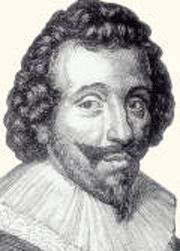On this date in 1626, French poet Theophile de Viau (alternatively, Viaud) took his life, after being exiled from France for blasphemy. Born into a Huguenot family in 1591 in Clairac and educated at a Protestant college, Viau went to Paris at 20. Under the protection of Henri II, the duke of Montmorency, he wrote the tragedy “Pyrame et Thisbe” in 1615. It was performed theatrically, then printed in 1623.
Encyclopedias identify Viau as a freethinker known for his “unsparing use of sharp wit in epigrams on the church.” He also had a reputation as a “libertine.” He was accused of blasphemy and indecent writings in 1619 and banished from Paris. Friends in the south of France aided him and he was permitted to return to Paris the next year. Continuing “blasphemies” got him exiled again. He returned to France from England and began taking instruction in Catholicism. It is up to debate what his motives were. Regardless, a Jesuit priest published “The Curious Doctrine,” a tract against Viau, in 1623. He was condemned to death in August 1623.
Fleeing for his life, Viau was intercepted at the border and imprisoned in the Conciergerie in Paris. He defended himself and was freed after his sentence was commuted to lifetime banishment. He took his own life. (D. 1626)


